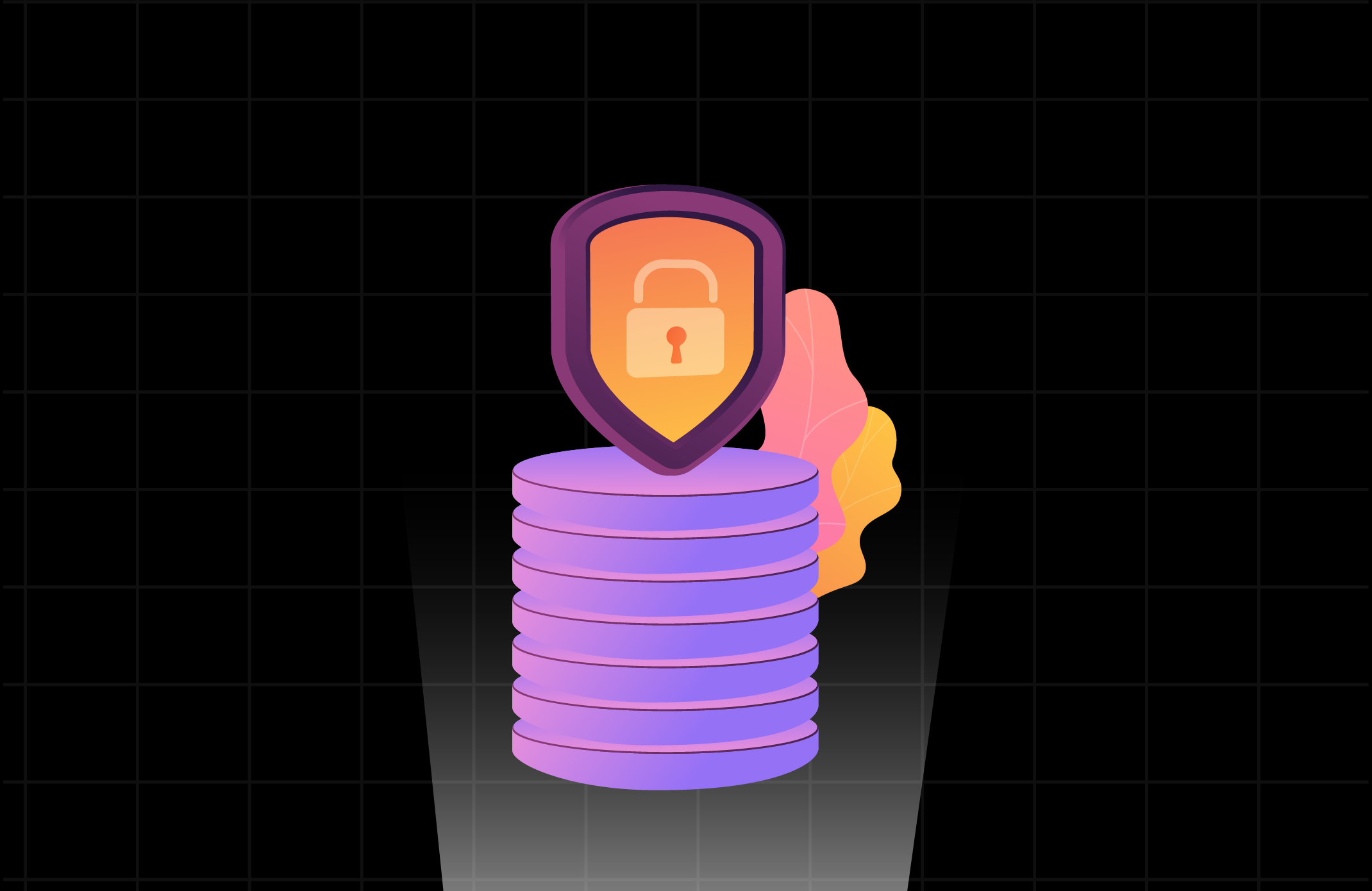A prominent but litigious category in the quickly developing world of cryptocurrencies is privacy coins. Due to their design to ensure confidentiality and secrecy during transactions, these virtual currencies violate the core principles of transparency that many believe should define the blockchain ecosystem. Significant concerns about the ethics and monetary theory of anonymity in a clear world are whipped up by the rise in popularity of privacy coins like Dash, Zcash, and Monero.
The Rise of Privacy Coins
By hiding transactional details such as sender, recipient, and transaction amount, privacy coins enhance user secrecy. Unlike Bitcoin and Ethereum, which both maintain transaction histories on a blockchain that are available to the public, privacy coins use advanced cryptographic techniques to protect personal information and transaction data.
Privacy coins were created due to worries about the privacy limitations of well-known cryptocurrencies. Although initially believed to be an anonymous way to transfer value, Bitcoin’s transparent blockchain allows for both deal tracking and user identification. To bridge this gap, privacy coins were created, giving users a payment option other than digital trails.
The Mechanisms of Privacy Coins
A range of technologies are used by privacy coins to guarantee anonymity. Ring signatures, for for instance, combine a user’s transaction with those of other users, making it nearly impossible to identify the origin of a transaction; undetected makes make sure the recipient’s address remains hidden; and Ring Confidential Transactions (RingCT) hides the transaction amount. Monero is one example of a coin that uses these technologies to ensure anonymity.
Rather than relying on transactional details to verify transactions, Zcash uses zk-SNARKs (Zero-Knowledge Succinct Non-Interactive Argument of Knowledge). The blockchain’s security and integrity can be preserved while allowing completely private transactions thanks to this technology.
Although It isn’t intended to be a privacy coin, it does have a feature called PrivateSend that makes use of coin combines to make transactions anonymous. While it’s not as loaded with functions as Zcash or Monero, it still gives users an extra degree confidentiality when they need it.
Privacy or Transparency?
The ethical ramifications of anonymity in finance are a topic of intense discussion, spurred by the rise of privacy coins. Advocates contend that, in an increasingly digital world, protecting individual freedoms requires respecting privacy as an essential human right. They contend that users can take control of their financial information with privacy coins, free from corporate or governmental exploitation of children.
Financial privacy is a major concern in many nations. Privacy coins provide as a lifeline for people living under oppressive regimes, allowing them to elude economic control and censorship. Likewise, privacy coins offer a means of safeguarding wealth and alleviating the effects of inflated in nations with patchy economies.
However, detractors believe that privacy coins enable illicit operations like tax evasion, money laundering, and financing of terrorism. Because they offer anonymity, it is challenging for authorities to follow illegal transactions, which might compromise efforts to combat financial crime. A few governments have even gone beyond as outlawing encrypted coins due to worries about national security.
The right amount of privacy versus transparency is a key question raised by this moral conundrum. Should people be able to have total financial privacy even if doing so makes it easier for them to engage in unlawful activity? Or, even at the expense of personal secrecy, should transparency be the top priority in order ensure accountability and deter crime?
Market Dynamics and Adoption
Privacy coins’ technical benefits and the regulatory obstacles they encounter both influence their economic environment. Privacy coins have established a specialised market, drawing users who value anonymity over transparency, despite their contentious origins.
Many variables have affected the market’s adoption of privacy coins. A few reasons include the increased interest in cryptocurrencies that provide better secrecy as a result of increased awareness of issues related to digital privacy. Concerns about digital privacy have grown as a result of high-profile data breaches and grew government evaluation, which has increased interest in privacy coins.
Furthermore, the darknet markets—where anonymity is crucial—have contributed to the proliferation of privacy coins. Its robust privacy features have made Monero in particular a popular choice on these platforms. However, regulatory scrutiny has also been drawn to this association with illicit activities.
One of the biggest obstacles to privacy coins’ acceptance and expansion is regulation. Numerous governments worldwide are encountering difficulties in overseeing cryptocurrencies, with some opting to outright forbid them. For instance, out of concern that Monero, Zcash, and Dash would be used for illegal activities, Japan banned them in 2018. In the US, privacy tokens are gaining a greater spotlight from the authorities and legislators.
Notwithstanding these challenges, the privacy coin ecosystem remains crucial to the cryptocurrency ecosystem. They are regularly traded on exchanges where regulatory scrutiny hasn’t forced them to be delisted, despite their lower market capitalisation than Bitcoin or Ethereum.
Privacy Coins and What’s Next for Cryptocurrency
Given that privacy coins are situated at the nexus of technological advancement, moral controversy, and legal difficulties, their future is uncertain. But the fact that these digital currencies exist compels important discussions about the future of cryptocurrencies and wider implications of online privacy.
The discovery of hybrid solutions that strike a balance between privacy and regulatory compliance is one possible result. Users can select the desired level of privacy with Zcash, for example, as it provides both transparent and private transaction options. This adaptability could function as a model for other privacy coins, enabling them to provide improved privacy features while navigating regulatory conditions.
The inclusion of privacy features into cryptocurrencies that are more widely used is an additional possibility. We might witness stronger privacy protocols being accepted by Ethereum and Bitcoin as privacy concerns gain traction, either through layer-two ways or sidechains. As a result, users may find that they don’t need separate privacy coins as much because they can obtain comparable levels of anonymity on popular computer networks.
The usefulness of privacy coins may also be called into question by developments to blockchain analytics. To stay ahead of these kinds of developments, privacy coins may need to continuously innovate as businesses create more advanced tools to track purchases and de-anonymize users.
Navigating the Ethical and Economic Crypto Space
Within the cryptocurrency world, privacy coins are an interesting and controversial development. They counter the idea that transparency ought to be a fundamental tenet of blockchain technology by giving an alternate that puts the privacy as well as self-reliance of the individual first. There are, however, inevitable moral and financial choices associated with this.
Privacy coins will push members close to cryptocurrencies to address important issues regarding the direction of digital privacy as they develop. How can the need for accountability and transparency interact with the right to privacy? To what level should countries regulate financial transactions that are anonymous? And how will these pressures affect the way the privacy coin market arises economically?
While there is no simple answer to these questions, they are crucial for comprehension as we work through the difficulties of a transparent society. Though they may not be final say on digital privacy, privacy coins force us to think about the kind of economic system we want to create via the digital age.
DISCLAIMER : Crypto products and NFTs are unregulated and can be highly risky. There may be no regulatory recourse for any loss from such transactions.

